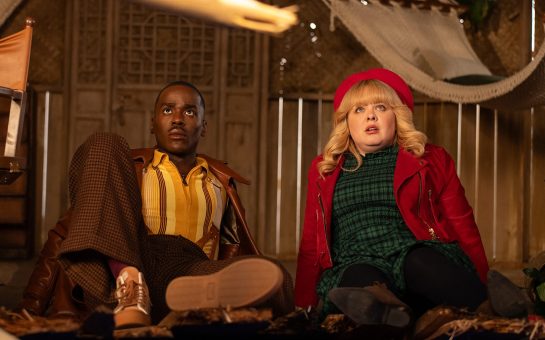The BBC is getting ready for the launch of The Voice while ITV’s Britain’s Got Talent returns to our screens tomorrow.

This weekend sees the start of the new BBC show The Voice as well as the return of Britain’s Got Talent. But despite the popularity of these programmes, I wonder are we being overloaded with too many talent shows?
Saturday night television has long been known to serve up light-hearted family entertainment.
From game shows to reality TV, it appears that talent shows have now become a regular fixture on the box, having taken over our screens with vengeance.
There can be no doubt this genre of programming is popular. The Beeb have spent a mammoth £22 million on The Voice as they prepare to go head to head with Britain’s Got Talent in the battle of the ratings. The latter show will be back for its sixth series.
Insiders have acknowledged that The Voice is the biggest programming risk that the BBC has taken in over 10 years.
Large sums of money are invested into these shows and the hard work of the producers and production team is evident. But whatever happened to original programmes?
Isn’t the purpose of public service broadcasting supposed to be for our benefit rather than for commercial aim? With the costs of a telephone call to keep our favourite contestant in each week, anyone would think that a monetary incentive is the main importance.
Yes, the human interest is there. We witness the competitive nature of ordinary members of the public as they aim to achieve their dreams. We go on a journey with them, through their ups and downs, triumphs and failures, tears, tantrums and laughter.
But it would seem as though the main winners were not the last contestants standing but the producers, as many of these acts vanish into obscurity as quickly as they were thrust before our eyes.
They are forgotten before the next series comes around. Leon Jackson, Steve Brookstein, Shayne Ward where are you now? As the producers bask in the large profits of the show and their one hit wonders.
Such shows offer contestants an easy route into the industry and a chance of instant stardom. But with it comes the lack of respect from the peers who have slaved away for years before getting any acknowledgment and a breakthrough.
For someone like Susan Boyle her dreams and ambitions may not have been otherwise achievable in a youth orientated and appearance fixated industry.
Despite my cynicism, I hope that whichever competitor succeeds this year has immense talent and longevity in their careers. But is more than just a commodity for money hungry producers.
Whatever our sentiments every year, thousands of hopefuls will continue to try their luck at TV talent show auditions, hoping that they are in with a shot at the big time. Audiences at home will love the good, berate the bad and at the end of series we will wait for next year’s offerings.
Regardless of our views, it seems as though television talent shows are here to stay.




